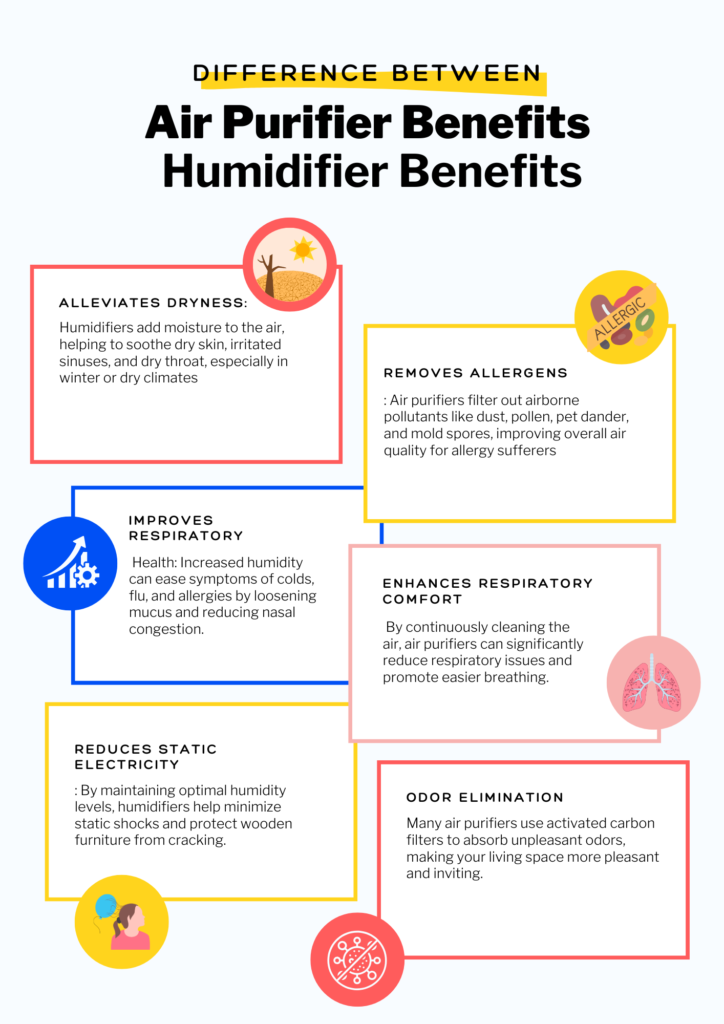When it comes to managing allergies, many people find themselves asking, “How do I know whether a humidifier or an air purifier is better for my symptoms?” Both devices play distinct roles in improving indoor air quality, but they address allergies in different ways.
Understanding these differences can help you make an informed decision about which device to use or whether you might benefit from both.

Understanding Air Purifiers
Air purifiers are specifically designed to remove airborne pollutants. They work by drawing in air through filters that capture allergens such as dust, pollen, pet dander, and mold spores.
The most effective air purifiers use HEPA (High-Efficiency Particulate Air) filters, which can trap 99.97% of particles as small as 0.3 microns.
Additionally, This makes them an excellent choice for allergy sufferers because they actively reduce the number of allergens in your living space.
By continuously filtering the air, these devices help maintain a cleaner environment, reducing the likelihood of allergy flare-ups.
The Role of Humidifiers
On the other hand, humidifiers add moisture to the air. They are particularly beneficial in dry climates or during winter months when indoor heating can lead to low humidity levels. Maintaining proper humidity levels (ideally between 30% and 50%) can help alleviate symptoms like dry throat, itchy eyes, and nasal congestion. For some allergy sufferers, a humidifier can soothe irritation caused by dry air and make breathing easier. However, it’s important to note that humidifiers do not remove allergens from the air; they simply add moisture.
Which is Better for Allergies?
So, which is better for allergies? Experts generally agree that air purifiers are more effective for preventing and alleviating allergy symptoms because they actively remove allergens from the environment. A well-maintained air purifier can significantly improve indoor air quality and provide relief from common allergens. In contrast, humidifiers may offer temporary relief from dryness-related symptoms but do not address the root cause of allergies.
The Benefits of Using Both for Allergies
If you suffer from severe allergies, using both devices together may provide the best results. An air purifier can continuously filter out allergens while a humidifier maintains optimal humidity levels to prevent dryness and irritation. This combination allows you to enjoy cleaner air without sacrificing comfort.
Choosing the Right Device
When choosing an air purifier or humidifier, consider factors such as room size and specific allergy triggers. Ensure that any air purifier you select has a HEPA filter for maximum effectiveness. Additionally, regularly clean and maintain both devices to prevent mold growth in humidifiers and ensure filters in purifiers remain effective.
Conclusion
In conclusion, if you’re looking to manage allergies effectively, prioritize an air purifier equipped with a HEPA filter. It will actively reduce allergens in your home and improve your overall air quality.
A humidifier can complement this by adding moisture when necessary but should be used judiciously to avoid creating an environment conducive to mold growth or dust mites.
By understanding the strengths of each device and how they work together, you can take proactive steps toward a healthier living space free from allergy triggers.
